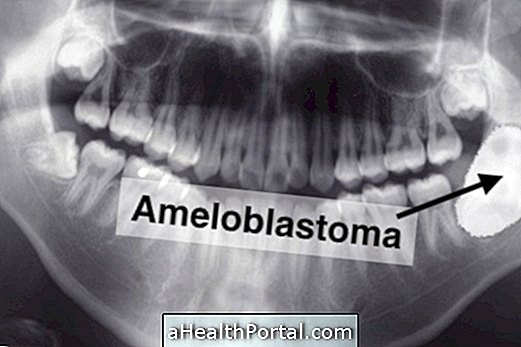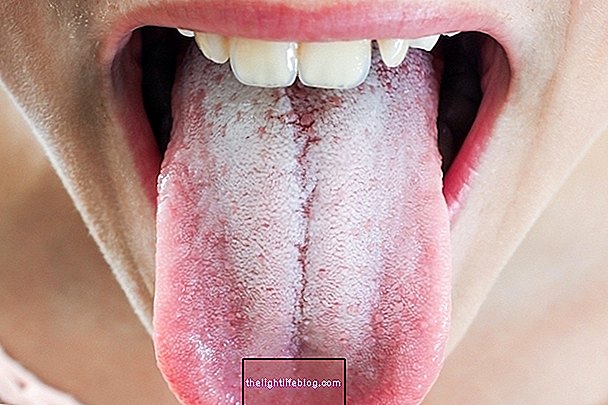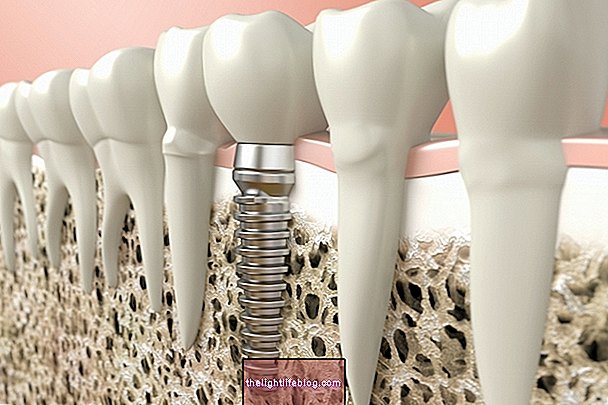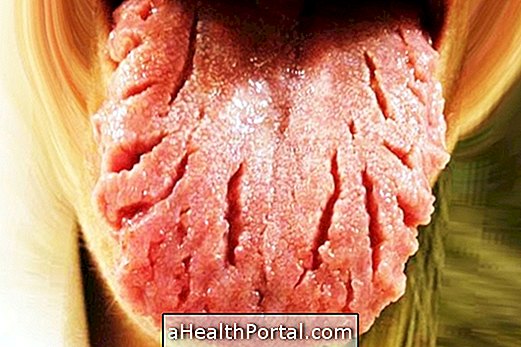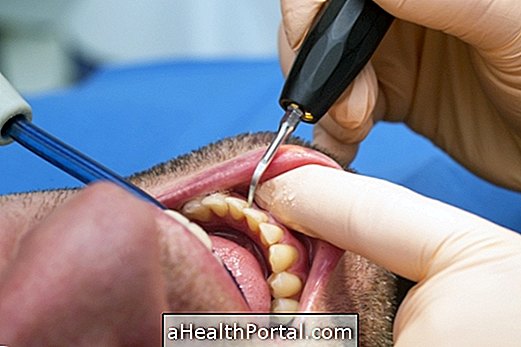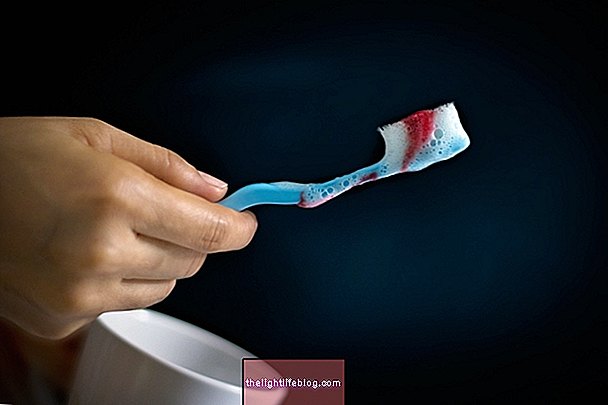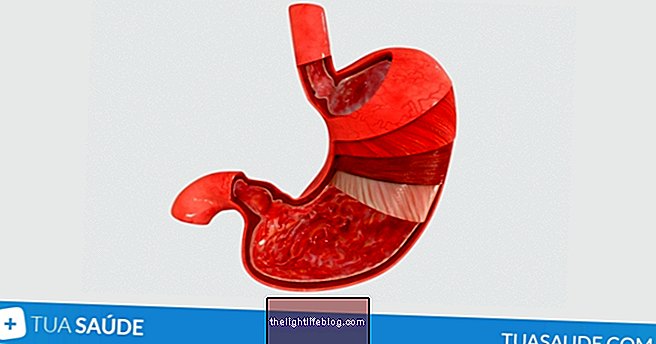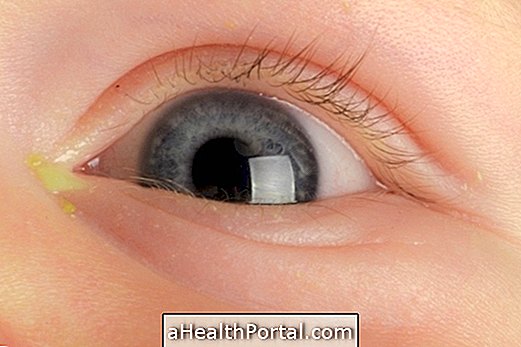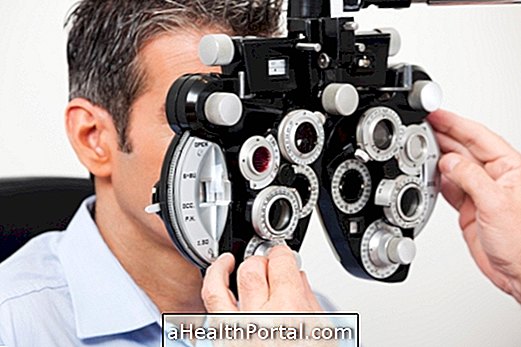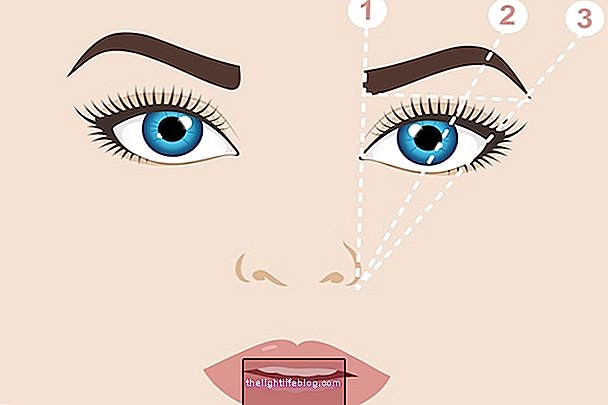Acute necrotizing ulcerative gingivitis, also known as GUN or GUNA, is a severe inflammation of the gum that causes very painful, bleeding wounds to appear and which may end up making chewing difficult.
This type of gingivitis is more common in poor places where there is no adequate food and where hygiene conditions are very precarious, which makes the gums more susceptible to bacterial infections.
Necrotizing ulcerative gingivitis can be cured by treatment with antibiotics, but it can reoccur if factors such as poor hygiene and malnutrition are not eliminated.

Main symptoms
The easiest symptoms to identify from this infection are swelling of the gums and the appearance of sores around the teeth. However, it is also common for other symptoms to appear, such as:
- Redness in the gums;
- Severe pain in the gums and teeth;
- Bleeding gums;
- Bitter taste sensation in the mouth;
- Persistent bad breath.
Wounds can also spread to other places such as the inside of the cheeks, the tongue or the roof of the mouth, for example, especially in people with AIDS or if treatment is not started quickly.
Thus, if symptoms of ulcerative gingivitis appear, it is important to consult a dentist or general practitioner to make the diagnosis and initiate appropriate treatment.
How the diagnosis is made
The diagnosis is usually made by the dentist or a general practitioner only by observing the mouth and assessing the person's history. However, there are cases in which the doctor may order a laboratory exam to analyze the type of bacteria present in the mouth, in order to better adapt the treatment.
How to treat gingivitis
Treatment for acute necrotizing ulcerative gingivitis is usually started with a gentle cleaning of the wounds and gums at the dentist, to eliminate excess bacteria and facilitate healing. Afterwards, the dentist also prescribes an antibiotic, such as Metronidazole or Phenoxymethylpenicillin, which should be used for approximately one week to eliminate the remaining bacteria.
In some cases, it may still be necessary to use an antiseptic rinse 3 times a day, to help control the number of bacteria in the mouth, in addition to maintaining proper oral hygiene.
People who have frequent cases of gingivitis, but do not have poor nutrition or oral care, should have blood tests to identify whether there is another disease that may be causing the problem to recur.
Watch the following video and learn more about the treatment of gingivitis:

Was this information helpful?
Yes No
Your opinion is important! Write here how we can improve our text:
Any questions? Click here to be answered.
Email in which you want to receive a reply:
Check the confirmation email we sent you.
Your name:
Reason for visit:
--- Choose your reason --- DiseaseLive betterHelp another personGain knowledge
Are you a health professional?
NoMedicalPharmaceuticalsNurseNutritionistBiomedicalPhysiotherapistBeauticianOther
